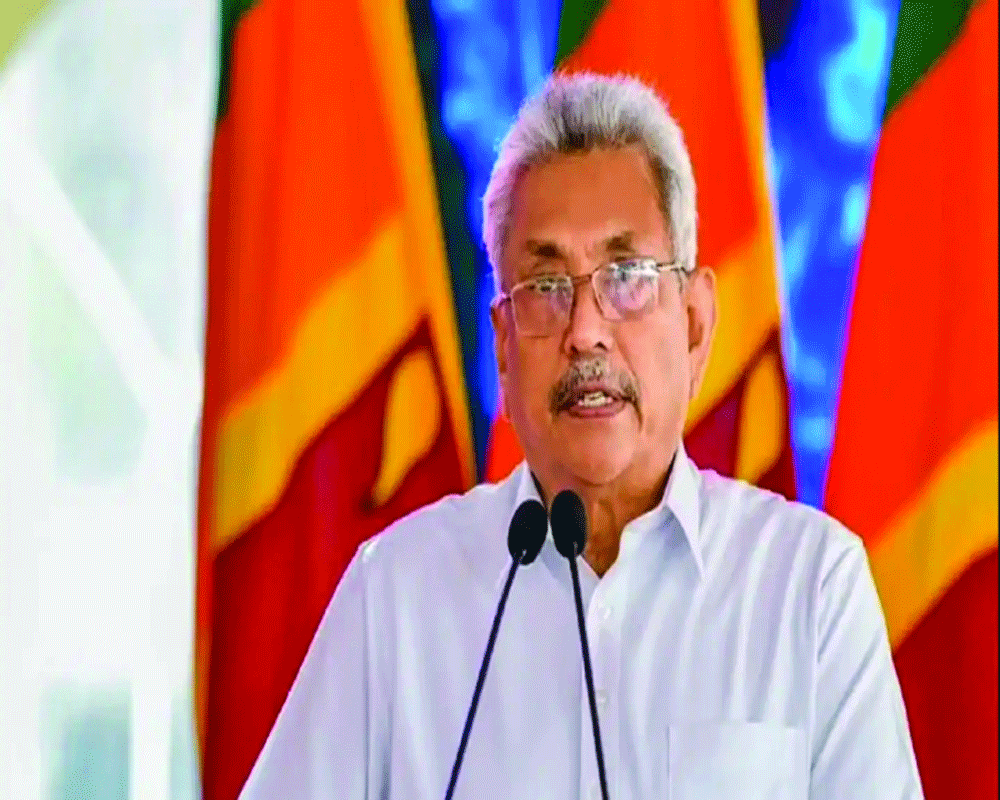Sri Lanka is in economic pits after fiscal mismanagement; its citizens are running wild
As violent protests erupted in Colombo, the parliamentary Speaker said President Gotabaya Rajapaksa will step down on July 13. The protesters stormed the President’s official residence and set Prime Minister Ranil Wickremesinghe's residence afire in the capital on Saturday. Wickremesinghe also announced his willingness to resign so that an all-party Government could be formed. This, however, hasn’t brought normalcy to the island nation. Sri Lankan Army chief General Shavendra Silva on Sunday appealed to people to maintain peace. He issued a statement, saying that “an opportunity has arisen to resolve the current crisis in a peaceful manner”. It will take some time for the restoration of order, for the crisis is too deep and intense to subside with a few resignations and earnest appeals. Over the years, the Rajapaksa family had not only become powerful — which, by the way, is not unusual in many countries, including in India — but almost ended up owning the Government. Which other country in the world had two brothers as the President and the Prime Minister, plus another brother as Finance Minister? Besides, they showed an astounding lack of wisdom by walking into the debt trap, called the Belt and Road Initiative, laid by China. Sri Lanka was forced to borrow massively to finance the showy infrastructure projects, of which the Hambantota deep seaport also caused concern in the geostrategic community in India. Especially after 2017, when it was given to a Chinese State-owned company on a 99-year lease. Yet, in a gesture of great magnanimity, India has helped the island nation in every possible manner in its moment of crisis.
The COVID pandemic exacerbated the situation, particularly because the Sri Lankan economy depends a lot on tourism. The livelihoods of a lot of people depend on tourism and tourism-related activities. President Gotabaya and his brother, PM Mahinda Rajapaksa, transformed (perhaps the still manageable) crisis into a catastrophe when they imposed organic farming and banned chemical fertilisers on April 29, 2021. The decision made green activists jubilant. The Indian environmentalist Vandana Shiva said in June last year at a virtual summit, “This decision will definitely help farmers become more prosperous. Use of organic fertiliser will help provide agri products rich with nutrients while retaining the fertility of the land.” As and when biodiversity of the ecosystem improves, the harvest will also improve and crops will be resistant to weeds and various diseases, she added. What, however, happened was the exact opposite of what she and her ilk said. The fall in farm yields was steep. The ban was withdrawn in the wake of extensive protests but the damage was done, with the paddy yields declining by around one-third all over the country. Tea, another major crop, suffered even more. Sri Lanka’s woes and the decline of the Rajapaksa family can be viewed as a classic case of nemesis following hubris. You have to pay a heavy price if you take green extremists seriously.
























